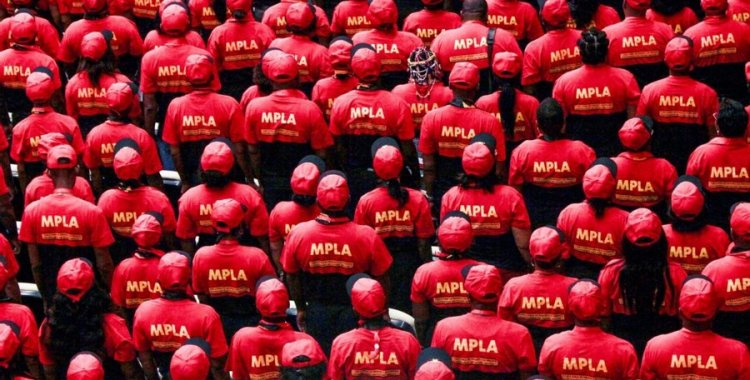The author of the book "O Domínio Decrescente do MPLA no Sistema Partidário em Angola" 2008-2022, launched this Thursday in Luanda, in a well-attended ceremony, which was attended by several personalities from Angolan civil society, politicians and academics, also concluded that the coalition strategy used by the opposition, led by the National Union for the Total Independence of Angola (UNITA), in the 2022 general elections, also contributed to this decrease in the dominance of the Popular Movement for the Liberation of Angola (MPLA).
Speaking to Lusa, the researcher, a doctor in Political Science and International Relations, from the Institute of Political Studies of the Catholic University of Portugal, said that in the work a reflection was made based on official electoral data, which allowed us to conclude that from 2008 to 2022 "the MPLA has been declining".
"Despite being the party that dominates our party system, this dominance is characterized by a decrease. This is the finding that motivated our investigation, trying to understand what can help us explain why the MPLA dominates, but in a decreasing way, over the last four elections", he highlighted.
Carlos Pacatolo stressed that the MPLA is a dominant party in the party system, because it has won elections four times in a row, however, it is decreasing even "in the arena of unbalanced democratic competition, in favor of those who govern, in favor of those who have control of all means, in favor of those who have control of the State".
"Despite this context, what we see is that it is decreasing, this is what motivated our academic curiosity, our research, to try to understand what is happening to Angolan society, especially what is happening to Angolan voters", he stressed.
"Have they stopped voting, is the number of people voting decreasing or is something happening beyond the obvious? In addition to the data we analyzed, whether from opinion surveys or interviews, they give us several clues of understanding this decreasing dominance of the MPLA", he added.
According to the writer, from the outset, "it becomes clear that there is a change in the electorate, there is an electorate that is increasingly younger", but that also votes less, without knowing the reasons, with the only certainty that "whoever manages to mobilize this electorate for the vote can have a surprising electoral performance".
"What we also know is that in addition to this demographic change that is occurring in the Angolan election, the fact that the opposition presented itself in a coalition in the 2022 elections, in a coalition that we call a coalition of will, also contributed to a decrease even more accentuated what has been the MPLA's dominance, as, for the first time, UNITA reaches 90 deputies", he said.
In the last elections, added Carlos Pacatolo, the MPLA went from being the party that dominated with a qualified majority to an absolute majority, which points to outcomes that are still unknown.
According to the author, one of the responses that the data shows is the high abstention, of voters who would traditionally vote for the MPLA, and, above all, in these last elections they did not vote, who "when asked between voting for the MPLA and voting for the opposition, prefer vote for the MPLA, but when asked between not voting and voting for the MPLA, they choose abstention".
"Just think that in 2022, abstention reached 55 percent, that's a lot of abstention, the biggest challenge is to mobilize those dissatisfied, to mobilize those who decide not to vote, whoever achieves this feat will surely win the elections", he stressed.
Carlos Pacatolo also highlighted that the younger electorate does not vote "for reasons of identity voting", that is, because they are activists or their parents were also, but with a more evaluative sense of voting, especially regarding the Government's performance.
This book, published now, was the writer's doctoral thesis, in 2023, and he plans to move forward with an investigation into the reasons for electoral abstention.







